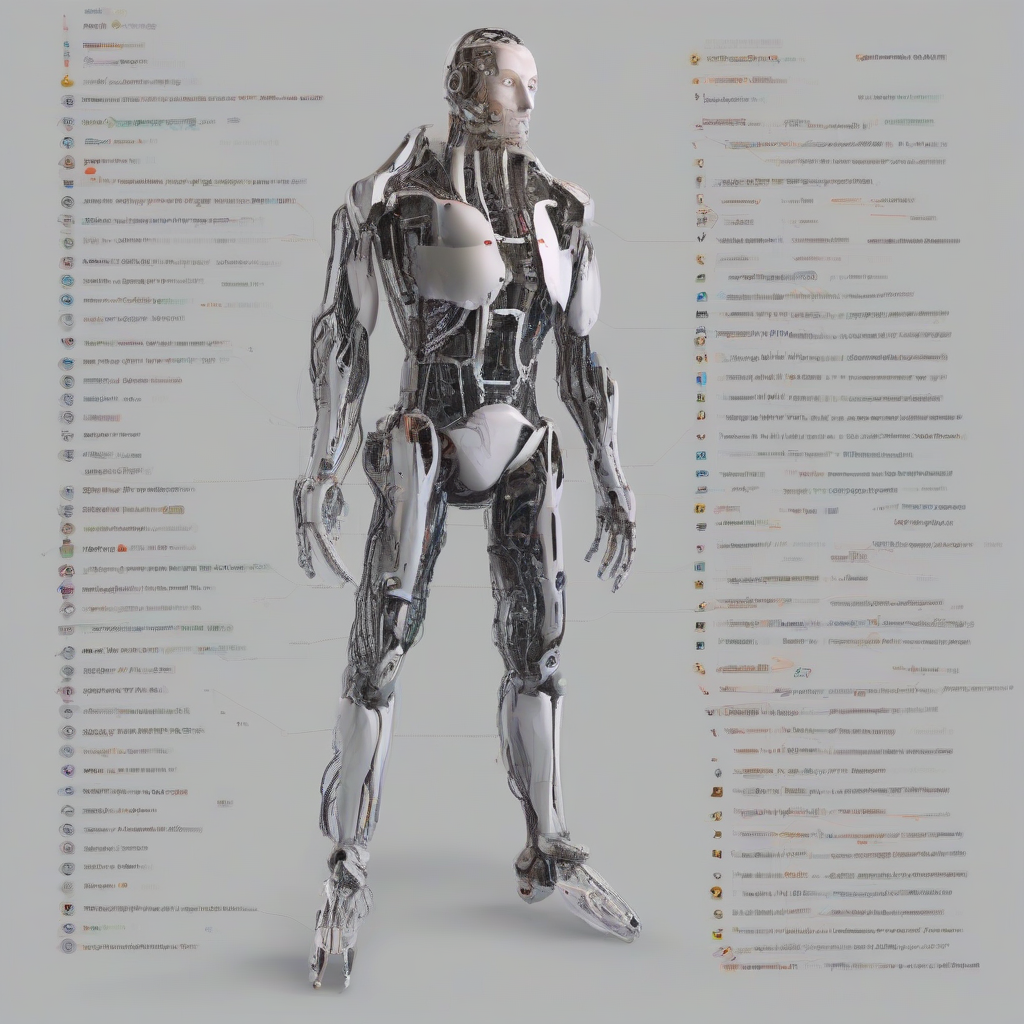Automotive Shop Insurance Costs: A Comprehensive Guide
Owning and operating an automotive shop is a challenging yet rewarding venture. Like any business, it requires careful planning, meticulous execution, and a proactive approach to risk management. One crucial aspect often overlooked is securing appropriate insurance coverage. This guide delves into the intricate world of automotive shop insurance, covering the types of coverage, factors influencing costs, and strategies to mitigate premiums.
Understanding Automotive Shop Insurance
Automotive shop insurance, also known as garage liability insurance, safeguards your business from financial losses arising from accidents, injuries, property damage, and other unforeseen events. It provides a crucial safety net for you and your business, ensuring continued operation even in the face of adversity. This insurance caters specifically to the unique risks inherent in the automotive repair industry, offering comprehensive protection for:
- Property Damage: Covers damages to your shop’s building, equipment, tools, and inventory from fires, theft, vandalism, and natural disasters.
- Liability for Customer Vehicles: Protects against claims arising from accidents or damage to customers’ vehicles while in your care.
- Employee Injuries: Covers medical expenses and lost wages for employees injured on the job.
- Environmental Damage: Addresses potential environmental liabilities resulting from spills or improper disposal of hazardous materials.
- Product Liability: Protects against claims arising from defective parts or services provided to customers.
- Cybersecurity: Offers coverage for data breaches, system failures, and other cyber-related incidents that can disrupt your business operations.
Key Factors Affecting Automotive Shop Insurance Costs
Several factors determine the cost of automotive shop insurance. Understanding these factors empowers you to negotiate better premiums and optimize your coverage.
1. Location
- Crime Rates: Areas with higher crime rates usually command higher insurance premiums due to the increased risk of theft, vandalism, and liability claims.
- Natural Disaster Risk: Regions prone to hurricanes, earthquakes, floods, or other natural disasters attract higher premiums to account for the heightened risk of property damage.
- Competition: Highly competitive markets might lead to higher insurance costs due to increased claims frequency and severity.
2. Business Size and Type
- Number of Employees: Businesses with a larger workforce generally incur higher insurance premiums due to the increased risk of employee injuries and workers’ compensation claims.
- Types of Services Offered: The complexity and risk associated with specific services can influence premium costs. For example, shops specializing in high-performance vehicles or collision repair may face higher premiums compared to those offering routine maintenance services.
- Annual Revenue: Higher revenue typically correlates with increased exposure to risk and higher insurance costs.
3. Shop Safety Practices
- Safety Training: Investing in comprehensive safety training programs for employees can demonstrably reduce the frequency and severity of accidents, leading to lower insurance premiums.
- Fire Suppression Systems: Installing fire suppression systems in your shop can mitigate fire risks, resulting in lower property insurance costs.
- Security Measures: Implementing robust security measures, such as alarm systems, security cameras, and strong entry points, can reduce the likelihood of theft or vandalism, leading to lower premiums.
4. Claims History
- Past Claims: A history of frequent or substantial claims can elevate your insurance premiums. Insurers assess your past claims experience to gauge your risk profile.
- Accident Frequency: If your shop has a history of accidents or incidents, insurers may view you as a higher risk, leading to higher premiums.
- Claim Severity: The cost of past claims also plays a role. Higher-cost claims indicate a greater potential for future liabilities, potentially influencing premiums.
5. Insurance Carrier and Coverage Options
- Carrier Reputation: Reputable insurance carriers often offer competitive rates and excellent customer service, while lesser-known carriers may have less favorable terms.
- Coverage Limits: The higher your coverage limits, the greater the financial protection you have, but this will also increase your premiums.
- Deductibles: A higher deductible can reduce your premium costs, but you will be responsible for a larger portion of any claim costs.
Essential Automotive Shop Insurance Coverage
Understanding the essential types of insurance coverage is critical for protecting your automotive shop effectively. These include:
1. General Liability Insurance
General liability insurance is the cornerstone of most business insurance policies. It protects you from financial losses arising from third-party claims of bodily injury or property damage caused by your business operations. This coverage extends to customers, employees, visitors, and the general public. For example, if a customer trips and falls in your shop, general liability insurance covers their medical expenses and legal defense costs.
2. Garage Liability Insurance
Garage liability insurance is specifically designed for automotive repair shops. It provides additional protection for risks related to customer vehicles, including:
- Damage to Customer Vehicles: Covers damages to customer vehicles while in your care, regardless of the cause, such as accidents, fire, theft, or vandalism.
- Liability for Customer Vehicles: Protects you from liability claims arising from accidents or damage to customer vehicles while in your possession. For example, if a customer’s vehicle is damaged due to a mistake made by your mechanic, garage liability insurance covers the repair costs.
- Towing and Storage Coverage: Provides coverage for damages to customer vehicles while being towed to or from your shop, and for potential liability while the vehicle is stored on your premises.
3. Workers’ Compensation Insurance
Workers’ compensation insurance is mandatory in most states and protects your employees in case of work-related injuries or illnesses. It covers medical expenses, lost wages, and other benefits to help employees recover and return to work. Failing to secure workers’ compensation insurance can result in significant penalties and legal liabilities.
4. Property Insurance
Property insurance protects your shop’s building, equipment, tools, inventory, and other physical assets from damage caused by various perils, including:
- Fire
- Theft
- Vandalism
- Natural Disasters
- Other Perils
This coverage ensures that you can rebuild or replace damaged property and continue your business operations.
5. Commercial Auto Insurance
Commercial auto insurance covers your business vehicles, including company cars, delivery trucks, and service vans. It protects against losses arising from accidents, theft, vandalism, and other perils. This coverage is essential for businesses that rely on vehicles for their operations.
6. Inland Marine Insurance
Inland marine insurance protects your business from losses related to tools, equipment, and inventory that are not permanently fixed to your shop’s property. It covers damages while these items are in transit, being repaired, or stored. This coverage is particularly important for automotive shops that rely on expensive tools and equipment for their services.
7. Cyber Liability Insurance
Cyber liability insurance safeguards your business from financial losses resulting from cyberattacks, data breaches, and other cyber-related incidents. It covers expenses related to data recovery, legal fees, and regulatory fines, and can help you mitigate the damage to your reputation and customer trust.
Strategies for Mitigating Automotive Shop Insurance Costs
While insurance is essential, you can explore various strategies to minimize your premiums without compromising your coverage:
1. Improve Shop Safety
Implementing robust safety protocols is not only good for your employees but also benefits your insurance premiums. Consider:
- Regular Safety Inspections: Conduct routine safety inspections to identify and address potential hazards in your workspace.
- Employee Training: Provide comprehensive safety training programs to your employees, covering topics such as fire safety, proper lifting techniques, and chemical handling.
- Emergency Response Plan: Develop a comprehensive emergency response plan to handle accidents, fires, and other unforeseen events effectively.
2. Enhance Security Measures
Investing in security measures not only protects your assets but also reassures insurers of your commitment to risk mitigation.
- Alarm Systems: Install advanced alarm systems to deter theft and vandalism.
- Security Cameras: Use surveillance cameras to monitor your premises and deter criminal activity.
- Strong Entry Points: Ensure your shop’s entry points are secure with sturdy doors, locks, and access control systems.
3. Maintain Accurate Records
Accurate record-keeping is crucial for demonstrating good risk management practices to insurers.
- Detailed Inventory Records: Maintain up-to-date inventory records to accurately assess the value of your assets for insurance purposes.
- Employee Training Records: Document all employee safety training programs and certifications to show your commitment to safety.
- Claims History: Keep accurate records of all past claims, including dates, details, and settlement amounts, to provide a clear picture of your claims experience.
4. Shop Around for Insurance
Compare quotes from multiple insurance carriers to find the best rates and coverage options for your specific needs. Consider factors such as:
- Carrier Reputation: Choose a reputable carrier with a history of fair claims handling and excellent customer service.
- Coverage Options: Ensure the chosen coverage options meet your specific business needs and risks.
- Premium Costs: Compare rates from different carriers, taking into account factors such as deductibles, coverage limits, and discounts.
5. Negotiate with Your Insurer
Once you have chosen an insurance carrier, don’t hesitate to negotiate your premiums. Consider:
- Discounts: Inquire about potential discounts, such as multi-policy discounts, safe driver discounts, or discounts for safety measures implemented in your shop.
- Deductibles: Explore the possibility of increasing your deductibles to reduce your premiums, but ensure the higher deductible is manageable if you need to file a claim.
- Coverage Limits: Review your coverage limits to ensure they are adequate to cover your potential liabilities, but avoid unnecessary overspending on excessive limits.
6. Maintain a Good Relationship with Your Insurer
Building a strong relationship with your insurer can pay dividends over time. Consider:
- Prompt Claim Filing: File claims promptly and provide all necessary documentation to facilitate a smooth and timely resolution.
- Open Communication: Maintain open communication with your insurer regarding any changes to your business or risk profile.
- Regular Reviews: Schedule regular reviews of your insurance policies to ensure they remain adequate and cost-effective as your business evolves.
Conclusion
Securing the right automotive shop insurance is essential for protecting your business from financial losses and ensuring its long-term viability. By understanding the various types of coverage, factors influencing costs, and strategies for mitigating premiums, you can make informed decisions that provide comprehensive protection while optimizing your insurance expenses.





